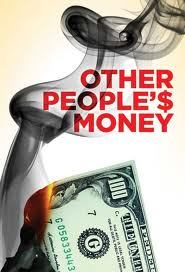 Some of those interviewed even said they would “go out of their way to choose the more expensive options, viewing such decisions as acts of defiance and a kind of well-deserved ‘payback’ after years of paying insurance premiums,” writes Dr. Pauline Chen in her New York Times blog post.
Some of those interviewed even said they would “go out of their way to choose the more expensive options, viewing such decisions as acts of defiance and a kind of well-deserved ‘payback’ after years of paying insurance premiums,” writes Dr. Pauline Chen in her New York Times blog post.
Patient reluctance to consider less expensive options for their own care will complicate healthcare cost-cutting initiatives that engage patients to weigh treatment costs, a new study in the journal Health Affairsfinds.
Based on interviews with 22 focus groups of insured people, researchers found four barriers to patients considering lower-cost care options, according to the study abstract:
- Patient preference for what they perceive as the best care, regardless of expense
- Inexperience with making trade-offs between health and money
- Disinterest in costs borne by insurers and society as a whole
- People’s tendency to act in their own self-interest despite recognizing they are depleting limited resources
Some of those interviewed even said they would “go out of their way to choose the more expensive options, viewing such decisions as acts of defiance and a kind of well-deserved ‘payback’ after years of paying insurance premiums,” writes Dr. Pauline Chen in her New York Times blog post.
“Surmounting these barriers will require new research in patient education, comprehensive efforts to shift public attitudes about health care costs, and training to prepare clinicians to discuss costs with their patients,” the researchers conclude.
Chen observes the real problem is that people equate cost with quality, even when informed that the differences between proposed options were largely negligible. The findings, she says, are “disheartening” and hamstring physicians’ abilities to control the cost of care.
But she says the authors’ conclusions leave reason for hope, noting that public attitudes can change.
The study also reinforces research that more dollars doesn’t necessarily mean better quality. In Januarys’ Annals of Internal Medicine, research found higher costs were associated with better care in 34 percent of the studies reviewed, but in 30 percent of the studies, better care was associated with lower costs, suggesting no causal link.
Editor’s Note: Other Peoples Money (OPM) drives irrational decisions

